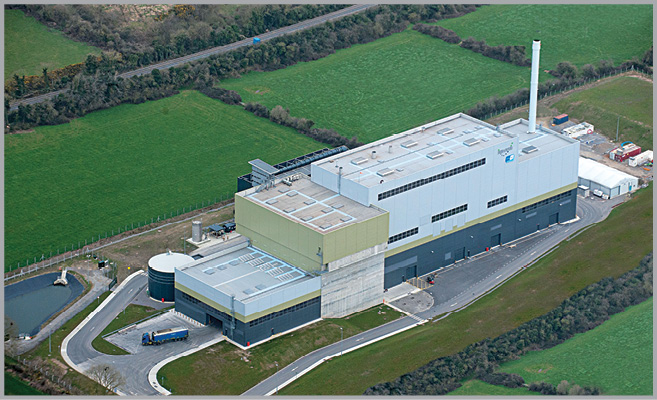All-island waste planning


An All-Island Waste Strategy would constitute a crucial component of efforts to develop a sustainable and mutually beneficial waste management solution by 2040. Indaver’s Julie Bowe writes.
Time for an All-Island Waste Strategy?
The Government’s recent consultation on a new National Planning Framework (NPF) out to 2040 aims to set a new strategic planning and development context through the co-ordination of a range of national, regional and local authority policies and plans. It also seeks to underline the importance of an all-island approach to planning and development and the promotion of mutual cooperation.
Within the context of waste management, the significance of strategic planning cannot be underestimated. Strategic waste infrastructure is not only needed to support the economy and society but is vital if Ireland is to treat waste in a self-sufficient and sustainable manner. It is also crucial if Ireland is to continue to comply with EU Directive requirements, thereby avoiding the imposition of penalties.
Waste planning to 2040
Waste planning in Ireland is primarily informed by the waste management plans for the Southern, Eastern-Midlands and Connacht-Ulster regions. These regional plans have called for further investment in treatment infrastructure for waste and highlight the need for increased self-sufficiency in order to minimise the export of waste which represents a lost economic resource.
Such forecasts are of even greater significance given the projected population increase to 6.5 million across Ireland and Northern Ireland by 2040. In light of such projections by the Central Statistics Office and the Northern Ireland Statistics Agency, the NPF must reflect these plans in the short term and provide a strategic framework approach to waste management out to 2040.
All-island context
A strategic approach to waste management should be co-ordinated through the development of an All-Island Waste Strategy. Given recent developments, most notably in the form of the UK’s referendum on membership of the European Union, enhanced cooperation appears to be of even greater importance going forward.
There has been practical cooperation through the joint procurement of waste management services by publicly funded hospitals. Benefits of an All-Island Waste Strategy include efficient use of existing capacity, economies of scale and ensuring that all disposal and treatment options available on the island are exhausted before relying on export. The export option is unlikely to be available into the long term given the increasing difficulties with securing outlets on continental Europe for waste exported from Ireland. The availability of sufficient domestic waste management capacity is essential in order to reduce Ireland’s vulnerability to external forces due to dependency on the export market for the treatment of recyclable waste.
The ability to enter into a bilateral agreement with the North is permissible within the framework of the EU Shipments of Waste. This would be of particular importance should a ‘full’ Brexit occur, whereby the UK leaves the European Union without concluding a Free Trade Agreement. At this point, the North, as part of the UK, could conclude a bilateral agreement with the South.
In conclusion, an all-island approach to waste management is a key element of a sustainable waste management solution to 2040 and beyond. Such cooperation will be of vital importance to ensure that the island as a whole can develop in a sustainable and strategic fashion amidst unparalleled challenges likely to be seen in the next number of years as the implications of the UK referendum become clear.
For further information contact:
Julie Bowe
Email: julie.bowe@indaver.ie
Web: www.indaver.ie






